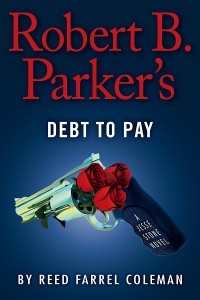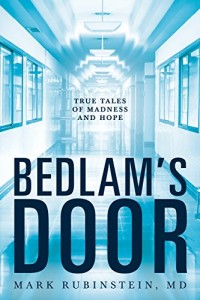“Bedlam’s Door”
Mark Rubinstein’s eye-opening “Bedlam’s Door” (Thunder Lake Press, $15.95, 280 pages) might not be fiction, but it certainly helps us better understand the methods and motivations of the psychologically damaged who populate both sides of the genre.
Rubinstein, who practiced psychiatry in the military and afterward, has framed his book around a series of case studies that, taken as a whole, strive to provide a keen and often scary grasp of what makes people do the inexplicable. For our consideration, he presents patients who suffer from a myriad of conditions, from surgical addiction to identity disorder, trauma, and depression, just to name a few. All in captivating prose that provides a unique insight into the fragility of the human mind.
In reading “Bedlam’s Door,” I couldn’t help but be struck by how Rubinstein’s well thought-out conclusions apply to a literal rogue’s gallery of fictional villains, as well as heroes, from Hannibal Lecter to Jack Reacher, from Darth Vader to Batman. A masterful treatise on mental (un)health, as professionally polished as it is riveting.








 A new book that attempts to dispel some of the myths and misunderstandings surrounding mental illness, is written by Dr. Mark Rubinstein. In his book
A new book that attempts to dispel some of the myths and misunderstandings surrounding mental illness, is written by Dr. Mark Rubinstein. In his book 




